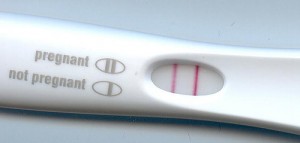How Long Does It Take to Get Pregnant?
Couples who start trying for a baby are in the TTC (Trying to Conceive) stage, which can be a short whirlwind for some or a long road with unexpected turns for others. One of the most common questions fertility doctors are asked by couples in the initial stages of TTC is how long does it take to get pregnant. What’s normal? And what’s not? The answers are as varied as their patients are. Some try for years and some get pregnant quickly. Many couples worry unnecessarily if they haven’t gotten pregnant yet within six months, and other couples don’t bat an eye at trying for 3 years.
However, if you’re going into this stage of waiting and hoping for a baby, you’ll have an easier time if you understand your chances of becoming pregnant in any given month, and when you should schedule an appointment with an infertility specialist. Here are several key tips on understanding how long it usually takes to get pregnant, which can help you and your partner spot any problems early on.
A Year is Normal
If a couple is having frequent, unprotected sex, they’re both free from medical conditions that could affect their fertility, and neither of them are over the age of 30, they have a 15% to 25% chance of getting pregnant in any given month. Based on these statistics, about half of couples will conceive after six months and 86% will become pregnant within a 12-month period. If you’ve been trying for a full year and you haven’t conceived yet, schedule a visit with a fertility specialist.
Lingering Effects of Birth Control
Many forms of birth control (including the pill, an IUD, or injectable Depo-Provera shots) could potentially lessen a woman’s chances of getting pregnant even after she’s off the medication. You could get pregnant the month after you go off birth control, but it may take your body many months to regulate ovulation cycles again. Whenever possible, plan to go off these forms of birth control 6-9 months before you begin trying to conceive. Switch to an alternative form of birth control (such as condoms) in the mean time.
Weight Affects Fertility
Being overweight or underweight can have an effect on your fertility. Getting to a healthy weight before you begin trying to conceive can increase your chances of getting pregnant. Trying to lose weight while you are trying to conceive is usually not advisable, however. Check with your doctor to find out how you can increase your chances of getting pregnant and whether weight issues could be affecting your fertility.
Skip the Timing and Have Sex Frequently
Unless you’re on a doctor-prescribed program, timing intercourse to your peak fertility days is often hit or miss and may not be necessary in the early stages of trying to conceive. You may have more success getting pregnant by simply having regular sex every two or three days rather than trying to have a lot of sex just before and while you’re ovulating. It’s easy to miss the signs of ovulation or to get a misreading on an at-home ovulation kit, and this may cause you to miss your fertility window. If you have frequent sex throughout the month, you can statistically increase your chances of getting pregnant by eliminating the chance of calculating your ovulation time incorrectly.
If you’d like to discuss your fertility concerns with Dr. John Jain, a board-certified fertility specialist at the Santa Monica Fertility Clinic, contact us today to learn more or schedule an appointment. Dr. Jain works with patients all over the world and has helped over 4,000 couples successfully conceive.

 company
company


Leave a Reply